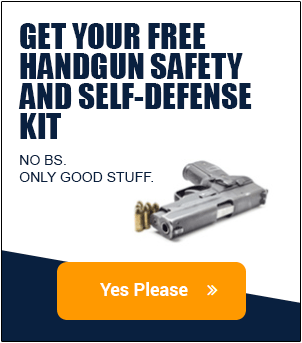Police officers call them “pre-attack indicators,” and these “danger cues” are what might tip a police officer off that they are in a dangerous situation. When you are carrying concealed, there will likely be some instance when you will have your gun on you and you will have to interact with police officers in some way.
This could be as simple as a routine traffic stop or the fact that you might be involved in a deadly force incident and you have to remain at the scene and answer questions. We spoke with a 25-year veteran of Oregon law enforcement to find out what makes them worried when they know that someone has a gun on them.
There are things you might do without even realizing it, because you’re nervous or because your adrenaline is up, that make a police officer feel that you are a threat. Even if you aren’t a threat, your behaviors could inadvertently escalate an already touchy situation.
The Officer says his response is highly dependent on the situation and the behavior of the person involved. Here’s what you need to do to keep your own cool and keep the situation calm.
Having an attitude.
When you’re talking to a cop, for whatever the reason, that is not the time to get into a heated argument to prove who’s right. Even if you think the officer was wrong to pull you over or you are upset that you got pulled over for a broken tail light when you were on your way to fix it, there is time to sort that all out later. If you can’t rationally talk a cop out of a citation or arrest at the scene then getting into a heated argument with them is not somehow going to make your situation better. If you feel the citation or arrest was made in error, take it to the courts and the justice system.
Acting agitated.
Keep your cool by whatever means necessary. “If you’re agitated, that’s a precursor to assault,” the Officer says. “That doesn’t mean that if someone is upset it’s going to turn into a bad situation, but it is an indicator that we look for that leads to assault.”
Clenching your fists or teeth.
Constriction of muscles in the hands and face is often an unconscious signal that a person is preparing for an attack. You may think you’re just stretching, but to an officer it looks very different.
Moving around while you’re standing.
If you’re standing in a manner that looks like your body is ready for action, the police office is going to be suspicious. Shifting your weight on your two legs or putting one leg in front of the other in a bladed boxing/fighting stance is a cue that you’re getting ready for a fight. Again, this may be something you just do when you’re nervous, but now’s not the time for it.
A lot of activity inside the car.
If you have other people in your car and you’re pulled over for a traffic stop, ensure that everyone else in the car is respectful as well. People moving around in the car in an unusual manner, like reaching down between their legs, reaching into back packs or other containers is a sign to the police that you may be trying to hide something or reaching for a weapon. As a courtesy to a police officer doing a dangerous job, limit your movement during traffic stops or contacts and keep your hands visible.
Not putting your car into park.
Keeping the car running with your foot on the brake means you’re not really trying to stop and you might try to get away at the first chance. Even if you aren’t planning a get-away, fully stop the car and park it.
Not making eye contact.
Maybe you’re exceedingly shy, but this is an instance when you need to get over that and look the police officer in the eye. It is common for people involved in criminal activity to avoid making eye contact with the police. On the other end of the spectrum those that obviously stare down the police with an angry look on their face are often involved in criminal activity as well.
Not being able to locate the registration or insurance papers.
If you’re driving your own car, you know where these things are. If you’re driving a friend’s car, they’ve shown you where these things are. If you’re driving a stolen car, well, it makes sense that you won’t know where these things are, and suddenly the cop is more suspicious.
On American Concealed, we’ve talked a lot about having “situational awareness,” and police officers are trained to develop this skill also. Body language is something we all give off, mostly unconsciously in the form of subconscious postures, facial expressions and hand positions. The next time you’re in a situation where you are interacting with a police officer, whether you have your gun on you or not, keep your body language top of mind. Don’t act suspicious unless you want to be treated with suspicion.

